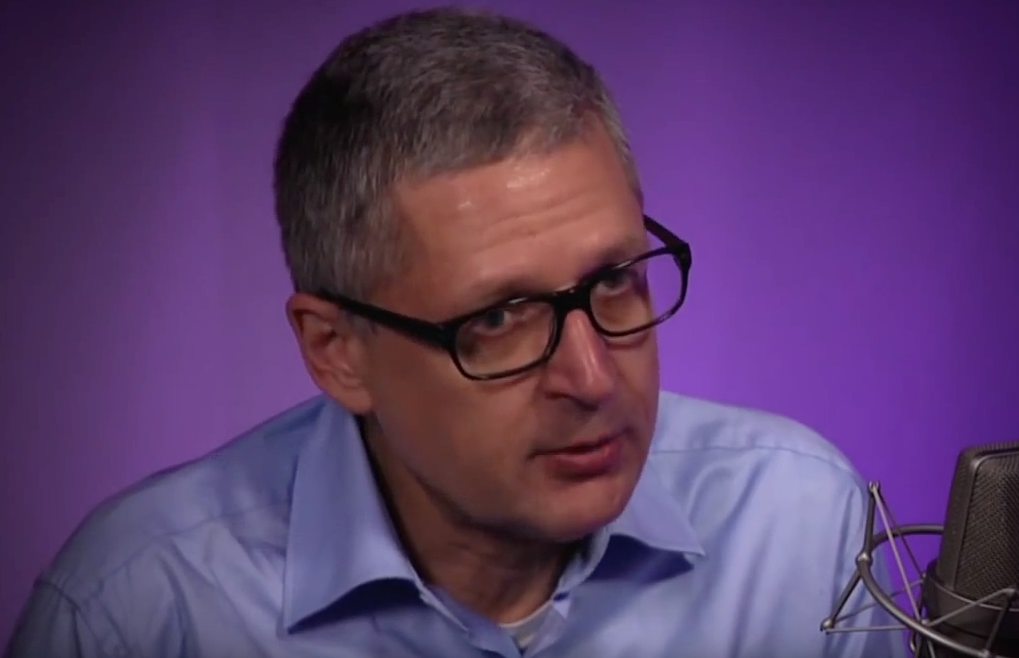Despite Constant Death Threats, Flemming Rose is Still a "Free Speech Fundamentalist"
The former Jyllands-Posten editor who published "Mohammed cartoons" in 2005 remains unbowed by terror.

Flemming Rose, the former foreign

affairs editor of Jyllands-Posten (the Danish newspaper best-known as the publisher of cartoons which depicted the Islamic prophet Mohammed in 2005), spoke with The Atlantic's Simon Cottee about the life he lives while under a jihadist-invoked death sentence, the inspiration he has long taken from the dissidents of the Soviet Union, and why he considers being a free speech fundamentalist to be a "mark of honor."
For the uninitiated, Jyllands Posten's publishing of 12 cartoons of various degrees of perceived blasphemy was followed by a spasm of violence across Europe, Africa, and the Middle East. Riots broke out during demonstrations, embassies were bombed, and assassination attempts against anyone involved with the cartoons continued for years afterward. In all, 139 people were reportedly killed in violent reactions to the drawings.
Soon after the "cartoon jihad" broke out, Rose laid out his intent in a Washington Post op-ed:
I commissioned the cartoons in response to several incidents of self-censorship in Europe caused by widening fears and feelings of intimidation in dealing with issues related to Islam. And I still believe that this is a topic that we Europeans must confront, challenging moderate Muslims to speak out. The idea wasn't to provoke gratuitously -- and we certainly didn't intend to trigger violent demonstrations throughout the Muslim world. Our goal was simply to push back self-imposed limits on expression that seemed to be closing in tighter.
More than a decade later, Rose admits he regrets that anyone died as an indirect result of his decision to defy threats of violence, telling Cottee:
I don't think that a cartoon is worth a single human life. But the dilemma for every one of us is what do you do when other people think that way? Do you bow down because they say, 'This is so important to me that I want to kill because of a cartoon?'
Cottee observes that the retired journalist and grandfather "shows no signs of disarray" despite the constant stress on himself and his family required by a life under global assassination threat, which includes the constant company of three bodyguards. The Atlantic writer speculates Rose's stoicism might be inspired by his time as a correspondent in Russia:
He described this period as a decisive moment in his political evolution, because immersing himself in Russian life during the twilight of the Soviet Union showed him what a real socialist society looked like: dysfunctional, authoritarian, and murderous. He also came to appreciate the true meaning of dissent. "The dissidents in the Soviet Union made a strong impression on me," he said, because they showed him just "how important it is to fight self-censorship, how important it is to have the right to attack ideas, no matter what," and because "they took some very tough choices that really ruined their lives."
Rose says he rejects the characterization levied by some of his Western liberal critics that he "does not appreciate the limits of free speech in a pluralist society and the responsibilities that come with its exercise." He insists he does believe in certain boundaries to free expression, but that those limitations must be confined to "incitement to violence and defamation of character."
Still, Rose doesn't mind the descriptor frequently used pejoratively against him that he is a "free speech fundamentalist." He tells Cottee that he wears the term as a "mark of honor," adding that essentially, encountering things that offend you is the cost of doing business in a free society.
Read the whole thing here, and check out Reason's Science Correspondent Ron Bailey's review of Rose's 2015 book The Tyranny of Silence: How One Cartoon Ignited a Global Debate on the Future of Free Speech.


Show Comments (40)